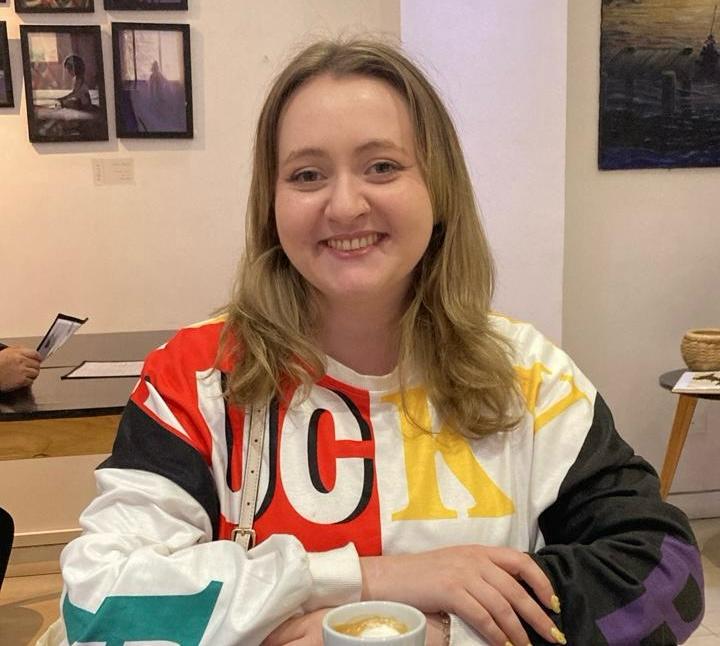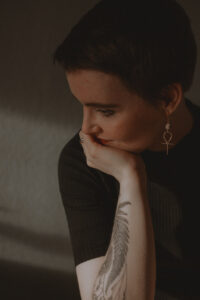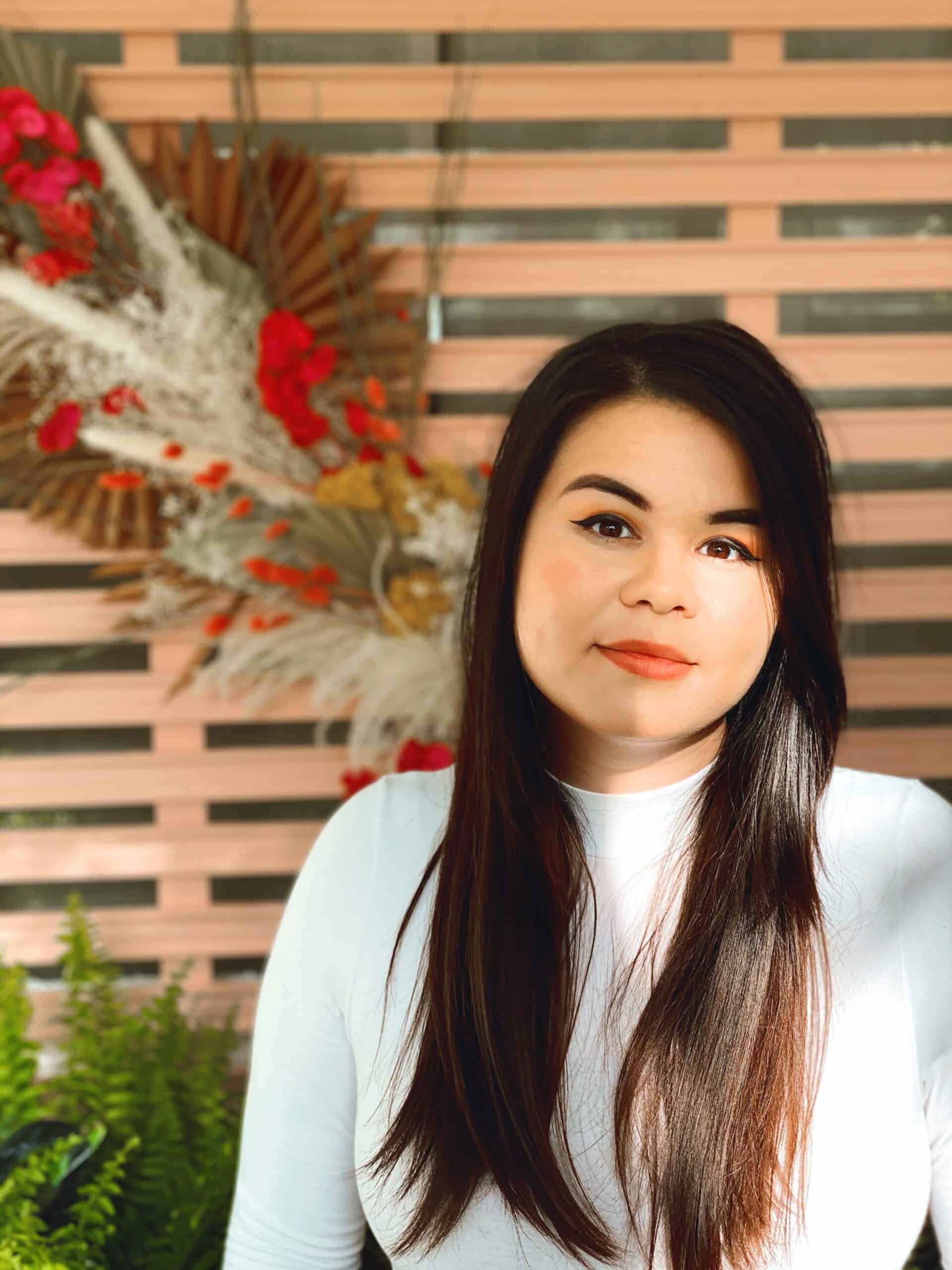Fernanda Delgado is a storyteller who turns her personal journey into a source of inspiration for others. After facing post-traumatic stress disorder and struggles with body image, Fernanda realized how common these feelings were among women, regardless of their backgrounds. Drawing strength from the stories that once comforted her, she decided to share her own, hoping to offer the same solace and encouragement to others. With raw authenticity and a fearless approach to vulnerability, Fernanda’s creative work explores themes of love, self-acceptance, and spirituality, resonating deeply with those who encounter it. Through writing, she not only finds healing for herself but also extends a hand to others on similar paths, proving that the act of sharing can be a powerful form of self-care and empowerment.
What motivated you to start sharing your personal story through writing and audiovisual mediums?
I went through post traumatic stress disorder and other issues with my body image, being a girl, bullying, having no idea what to do, and I came to realize how common it was for other women to have the same underlying feelings, even if their situations were drastically different from mine. But, most of all, reading and hearing about other women’s stories helped me a lot, so I figured mine would help others, as well. And so far, my experience sharing it has been very positive.
What are some challenges you faced while sharing your story, and how did you overcome them?
I was afraid of writing, at the very beginning. I didn’t know I could write, but I really wanted to. I explored other mediums to portray my story and feelings but they didn’t feel right. I’m still searching for the right way, but it definitely has to do with writing.
How do you maintain authenticity and rawness in your storytelling process?
It’s impossible to write something good that’s not honest. It’s clearly visible when someone is trying too hard to be someone they’re not or they’re keeping things from you. For me, there was no alternative. If I was going to write, I was going to do it authentically and genuinely. That’s how I learned to write and that’s how I continue to do it. Otherwise, stories refuse to come.
What impact do you hope your story will have on your audience, particularly women?
I hope someone feels comforted and feels like this is what they needed to read at that time; the same way I’ve felt when reading other women’s stories. It’s sort of paying it forward.
Can you share a bit about the themes or messages you explore in your creative work?
I explore love, relationships, self-love, depression, struggling with being a very sensitive person, spirituality.
What advice would you give to other women who want to share their personal stories but may feel hesitant or unsure?
I think that unsureness comes from being afraid of looking at oneself and our story. My advice would be to write for yourself or for no one. Just write thinking that that paper will eventually go in the trash or be burned. That way, you can start to approach what you’re afraid of so much, taking away the scary consequences of having something in writing. Or worse, waiting for it to be perfect. Take the pressure off.
How has your background or location in Santiago, Chile, influenced your creative process?
The city where I live and come from has given me the courage to explore themes that go beyond the ones that are popular here. It’s very common to find material on the “Dictadura” and a lot of art is based on that time period or that subject. And I was not interested in doing anything with that. I wanted to tell other stories but I had the belief that to do art it must be related to that theme. Coming from here, I realized I was free to choose what I wanted to say and what I wanted to talk about.
Have you encountered any misconceptions or stereotypes about sharing personal stories, and how do you address them?
I send my stories out in the world and I think I’m no longer responsible for them or for the interpretations others make of my work. When I free my stories into the world they live their own lives and what people think of them says more about them that about me. At the beginning I was scared and I showed everyone before I published something to see what they thought. The first time I had the courage to publish, my cousin’s wife called me and said “omg! how can you say that about your sister!” And I was shocked because my story had nothing to do with my sister (I thought). I just mentioned her. I went and showed my sister the story and she shrugged. It had to do with my cousin’s wife and her issues. Nothing to do with me.
With time, I cared less and less and now I understand when a story is asking me to be free in the world and when something is just for me.
What are your future goals or aspirations for your creative project?
I want to keep exploring how I can portray words and stories in social media and audiovisual media: narrating, pictures, writing, etc. Eventually I would like to publish some books, but not yet.
How do you balance vulnerability and strength in your storytelling?
Vulnerability is strength. Vulnerability is not weakness. It’s the strongest and bravest you can be.
Are there any particular authors, artists, or creators who inspire your work?
Anne Lamott, Elizabeth Gilbert, Anne Patchett, T.J. Klune, Moya, Eve Babitz, Patti Smith, etc.
Can you share a memorable feedback or response you’ve received from someone who experienced your story?
“I want to give you a hug.” “Can I have coffee with you?”
What role does self-care play in your journey of sharing your personal story?
Writing, for me, is self care. It’s a form of taking care of my soul and what it needs.
And when I have stories that want to live outside, releasing them is self care also. Understanding that once they’re out there they’re a thousand different versions of what I wrote, depending on who reads them, helps me detach and live with my own personal version, instead of trying to tell people hoe they should analyze what I wrote or what it means. Having that understanding first allows me to take care of myself when publishing work.
How do you stay motivated and inspired during times of doubt or creative blocks?
I just write. I write even if it’s bad. Even if I repeat the same sentence over and over. But, I put pen to paper. Not on a computer.






